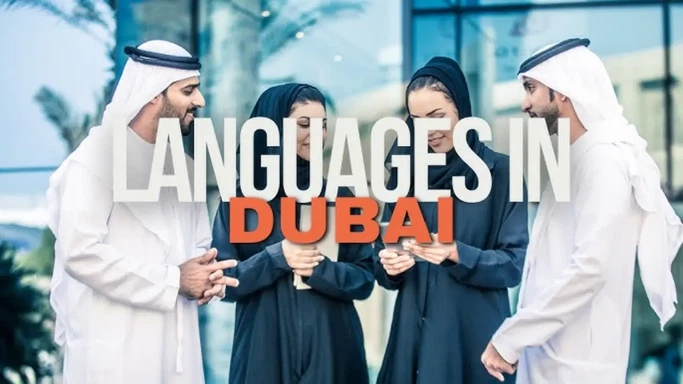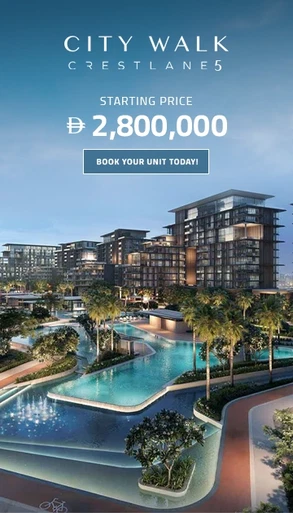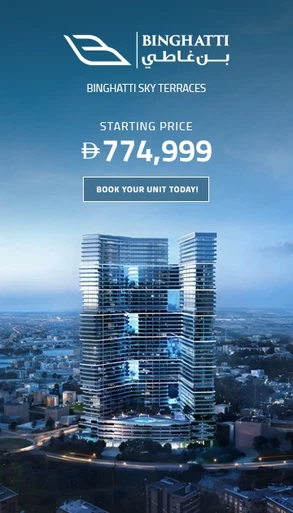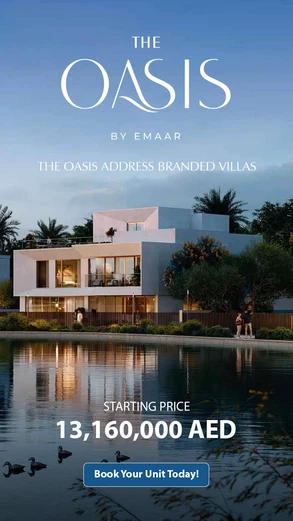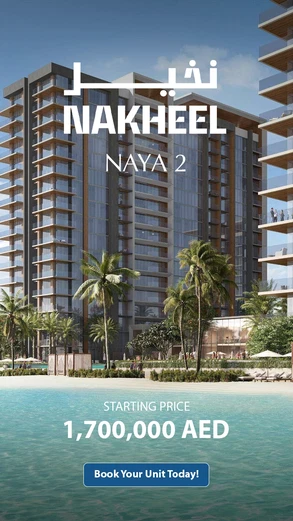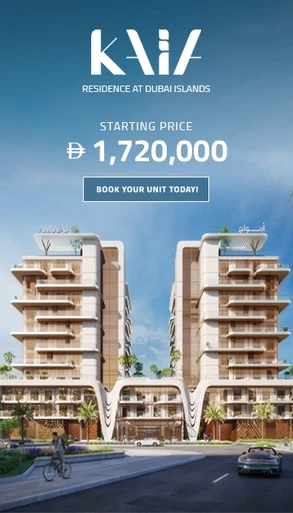Dubai is not only well-known as the city of skyscrapers and luxurious shopping, but it is also the place where the world gathers. With an expat population exceeding 90%, residents from across 200 nationalities bring with them hundreds of mother languages.
Although the official language of the UAE is Arabic, English prevails in the offices, schools, tourist attractions, and so on. Whether you're traveling to home, riding the metro, or amid the market, languages like Tamil, Malayalam, Tagalog, Urdu, and Hindi, are frequently heard.
However, the government of Dubai has been reinforcing policies to integrate Arabic in private and public educational institutions. These initiatives help in maintaining the essence of Dubai, while progressing toward a bright future.
Let's explore what language Dubai speaks.
Official Language of Dubai
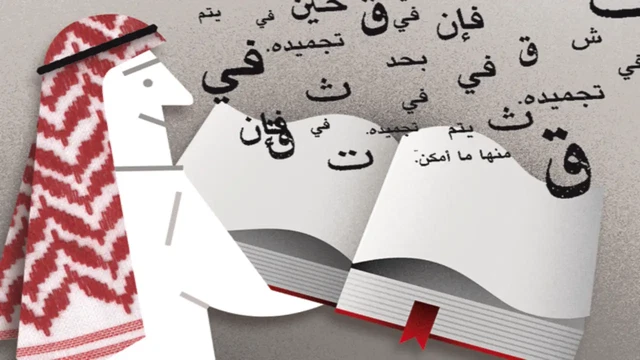
What language is spoken in Dubai? Arabic is the official language of Dubai, as well as the entire United Arab Emirates. Let’s see where it mostly serves:
- Usually spoken at government offices, in laws, and in official documents.
- Signs on the road, legal documents, and common notices are typically published in Arabic.
- Emiratis usually speak Gulf Arabic, a local dialect, which is used in their daily communication.
- Modern Standard Arabic is used in school, media, and in official communication.
Note: It is not obligatory to understand Arabic if you are a tourist. Knowing simple greetings like hello: Marhaba, thank you: Shukran, goodbye: Ma'a as-salama, yes: Na'am, no: La is a plus point for both Emiratis and expats.
The Role of English
English is the most spoken language in Dubai despite the fact that the national language is Arabic. See why:
- It serves as a key medium between the diverse population in the city.
- Typically used in business, education, and tourism.
- The majority of contracts, the menu, road signs, and advertisements are also organised in English, making it hassle-free to navigate for visitors and expats.
- A common language in schools, offices, meetings, and written communications.
Expat Influence: What Language Do They Speak in Dubai
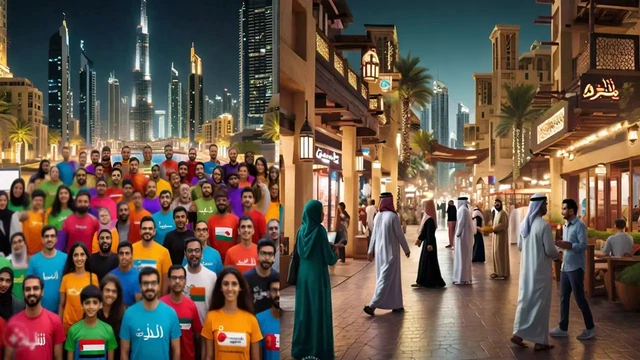
The population in Dubai consists of approximately 92% expatriates, but it is a literal melting pot of languages. In addition to Arabic and English, there is a wide variety of other languages used here due to the huge number of expats:
- Hindi and Urdu – South Asian workers and their families use this in their trade, construction, and retail.
- Tagalog - This is widely used in hospitality and in the customer care sector, owing to the Filipino community.
- Persian (Farsi) - This is spoken within the long-established community that exists in Iran.
- South Indian languages - Telugu, Malayalam, and Tamil are common in the neighbourhoods and companies owned by Indian expatriates.
- Punjabi/ Bengali - Adding to the mix from Pakistan, India, and Bangladesh.
- European languages: Among the expatriated and tourists, some broadly heard languages are French, German, and Russian.
This linguistic variety implies that you will be able to hear dozens of different languages within a single day in your street.
Where You'll Hear These Languages
The multilingual nature of Dubai is manifested through different aspects:
- Government offices/legal environment - Arabic is the language of navigation, with frequent translations into English.
- Business and corporates - English is the dominating language in meetings, on contracts, and at the workplace.
- Educational institutions - English is the primary instructional language, and Arabic is being taught as one of the mandatory subjects.
- Markets, taxis, neighbourhoods - Hindi, Urdu, Malayalam, and Tagalog, among other South Asian languages, are the prevalent ones.
- Tourist hotspots - Almost everyone speaks English as their native language, but often switches to Arabic, Tagalog, Hindi, or Russian.
Such a combination implies that the people in Dubai usually end up switching some languages based on the situation, and the city simultaneously exhibits both global and local features.
Dubai Slang Survival Guide
| Phrase | Meaning | When to Use It |
|---|---|---|
| Yalla | Let's go/hurry up | Calling friends, leaving a place |
| Habibi / Habibti | My dear / my friend (male/female) | Greeting or showing affection |
| Khalas | Enough / finished/done | Wrapping up a task, ending a convo |
| Inshallah | God willing / hopefully | Talking about future plans |
| Mashallah | Wow / what a blessing | Praising something good |
| Wallah | I swear / honestly | To emphasize sincerity |
| Ahlan / Marhaba | Hello / welcome | Greeting someone |
| Shukran | Thank you | Everyday gratitude |
| Afwan | You're welcome / excuse me | Polite responses |
| Full option | All-inclusive / with everything | Buying cars, electronics, or rentals |
| Timepass | Doing something just to pass the time | Hanging out casually |
| Masala | Spice/gossip/drama | Talking about juicy stories |
| Kabayan | Fellow Filipino / countryman | Greetings within the Filipino community |
| Same same, but different | Similar, but not exactly the same | Casual comparison |
Multilingual Real Estate: Serving a Global Audience

The multilingual nature of the city is best seen in Dubai by the flourishing real estate business. Buyers, renters, and investors are dealing in property from across every part of the globe, which means every language has a prime value in Dubai.
English is the default language that is used in contracts, listing, and client communication, and hence the understanding of the market is easy for foreign investors. Arabic serves a crucial part of the legal work that documents official governmental records. In addition to this, the real estate agents usually switch between Hindi, Urdu, Russian, Farsi, and Chinese in order to cater to their varied clientele.
Benefits of Learning Arabic
While you can easily get by in Dubai with English, but to know Arabic is a real plus:
- Better Networks - You should use a phrase such as Shukran (thank you) or Marhaba (hello); these expressions will help you to develop bonds with Emiratis and permanent residents.
- Cultural Insight - Learn Arabic and gain a greater appreciation of country behaviours, customs, and values.
- Business Advantage- Negotiating, networking, or doing business with governmental agencies for an Arabic speaker might do you some good with business.
- Travel Ease - It is easier to travel to other Gulf and Middle East countries now that one knows the Arabic language.
- Personal Development - Learning one of the most ancient and the most prosperous languages in the world opens up your worldview as well as your mental faculties.
Even a few words are more than enough to demonstrate respect and make life in Dubai even more fruitful.
Tips for Visitors
Dubai is pretty convenient to the traveller, and particularly because of the language, it is one of the easiest cities in the Middle East. Nevertheless, your experience can become easier with the help of a couple of tips:
- Learn English - The hotels, malls, restaurants, and tourist attraction sites have practically all their staff speaking English.
- Get familiar with Arabic language - Words such as Marhaba (Œhello), Shukran (thank you), and khalas (finished).
- Toleration when it comes to the accents - Active listening is an exercise that provides the absence of confusion.
- Translation apps - The translation apps come in handy when traveling to local markets or localities where Hindi, Urdu, or Tagalog is spoken.
- Honour cultural background - There are Arabic expressions such as Inshallah, which have religious connotations, hence they should be used wisely.
Language not only makes the navigation more straightforward, but also gives exposure to different cultures in Dubai.
Closing In!
Dubai’s multicultural ecosystem invites individuals from over 200 nationalities to live here. The culture and identity of the UAE are grounded in the Arabic language, but English prevails in the sphere of business and tourism.
There is the sound of Hindi, Urdu, Tagalog, Persian, and many others that one can add to that, and Dubai turns into a global conversation. This is irrespective of whether you are visiting the city, working, or investing in the city: you know, even a word or two of Arabic or merely taking pleasure in the mash-up will make you feel more part of this city.
Explore More about Dubai
- Top Shopping Malls in Dubai
- Hidden Gems in Dubai You Need to Know
- Best Things to Do in Dubai in Summer
- Your Ultimate Guide to DXB Airport
- New Off Plan Projects In Dubai
- A Guide to Old Dubai
- Top Spots to View the Dubai Skyline
- Why to Invest in Dubai South
- Complete Guide to DIFC Area
- Top R.Evolutions Off-Plan Projects You Should Know in 2025
